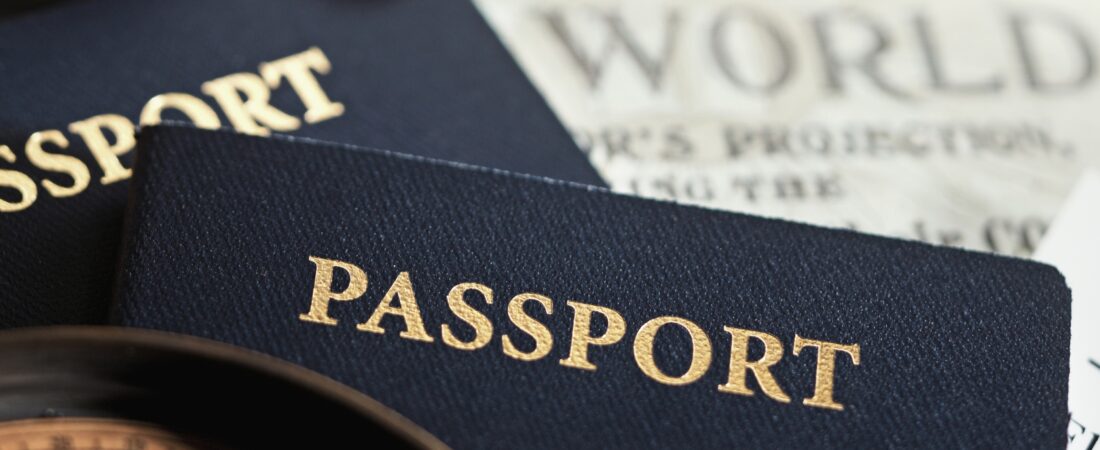One of your legal responsibilities before entering into a tenancy is to carry out Right to Rent checks on your tenants.
This only applies to landlords in England, and it ensures that anyone renting your property has the legal right to live in the UK.
Here, you’ll find everything you need to know about Right to Rent checks, including how to do one correctly.
- What is Right to Rent? When was this rule introduced?
- Who is responsible for doing these checks?
- How to do a Right to Rent check correctly and legally
- Are there any exceptions?
- What penalties could you face for Right to Rent breaches?
Save time and money by reaching the right tenants without the hassle of hidden costs. Get Started Today
What is Right to Rent? When was this rule introduced?
Right to Rent was brought in under the Immigration Act 2014 as part of the then government’s reforms to the immigration system.
It has been a legal requirement for landlords in England since 1st February 2016. If you let property in Scotland, Wales, or Northern Ireland, this doesn’t apply to you.
When you do a Right to Rent check, you’re simply confirming that everyone who will live in your property has the legal right to reside in the UK.
Who is responsible for doing these checks?
As a landlord in England, it’s your legal duty to check that every adult tenant has the right to rent before they move in.
But you’re not the only one who might be responsible. Right to Rent checks should also be done by:
- Occupiers who permit a lodger to live in the property
- Tenants who sublet part or all of the property (unless the landlord and tenant agree in writing that the landlord will take on this responsibility)
- Letting agents who have been given written permission by the landlord to carry out the Right to Rent checks on their behalf.
Whoever takes on the checks must make sure they’re done correctly and in line with the rules.
Does OpenRent handle Right to Rent checks for you?
OpenRent can’t do these checks for you because the law states you must check the original documents with the tenant present. But we make the process easier.
Our detailed referencing reports tell you exactly what you need to do to follow the rules and avoid fines. With our help, you can be sure you’re doing things right without any stress.
You might also be interested in…
- How to Serve a Section 21 Notice to Tenants
- How to Be a Live-In Landlord: Rules, Rights and Managing Lodgers
- How to Increase the Rent by Serving a Section 13 Notice
- Rent in Advance Rules Under the Renters’ Rights Bill Explained
- Understanding Leasehold Reforms in 2025
How to do a Right to Rent check correctly and legally
Yes, as a landlord in England, you must always carry out Right to Rent checks. It’s not optional.
You must check every adult who will live in the property, even if they aren’t named on the tenancy agreement. This includes UK citizens.
You can do the checks in one of three ways:
1) Manually checking an original form of ID (from a list of acceptable identification documents) in the presence of the prospective tenant. This can be done in person or via a live video call.
Make sure to keep clear, dated copies of these documents securely for the entire tenancy and for at least one year after it ends.
2) Using an approved identity service provider (IDSP) to check their ID. These are trusted third-party providers approved by the government to perform digital Right to Rent checks on British and Irish citizens with a valid passport, including Irish passport cards.
3) Checking online via the Home Office ‘share code’ system. If the tenant is an overseas national (including Europeans), they can give you a share code and their date of birth.
You enter this information on the Home Office website, which will then show their immigration status.
If the tenant’s documents are from List A, you can do this check at any time before the tenancy starts. But if they’re from List B, the check must be done within 28 days before the tenancy begins. You can find these documents listed in Annex A of the guidance.
Arranging a tenancy from abroad
If you agree to rent to someone who is still abroad, you can offer the tenancy in principle. But you must check their ID when they arrive. If they can’t show the right documents to prove who they are and that they can live in the UK, they cannot rent your property.
When the Home Office has the tenant’s documents
Sometimes a tenant’s documents are with the Home Office because they’re waiting for a decision or appeal. In this case, you can ask the Home Office to carry out the Right to Rent check for you. This can be done online or by calling the Landlord Helpline on 0300 069 9799. You will need the tenant’s Home Office reference number to do this.
Do I need to do follow-up checks?
If your tenant has a permanent Right to Rent (like British citizens or Europeans with settled status) you only need to check their documents once, before the tenancy begins. This means you don’t have to repeat the check if the tenancy is renewed.
However, some tenants have a limited Right to Rent because of their immigration status. For example, many international students have visas that allow them to stay in the UK for a set time, usually the length of their course. Others might have pre-settled status under the EU Settlement Scheme or limited permission through the points-based immigration system.
You must check your tenant’s Right to Rent before 12 months have passed or before their permission runs out if it lasts longer than 12 months.
If your tenant’s visa expires during the tenancy, there is additional information available in our help centre on what steps to take.
Make sure your next tenant is the right fit without spending a fortune. Let’s keep your property safe! Order Tenant Referencing
Are there any exceptions?
Landlords are not legally obligated to check tenants residing in the following types of accommodation:
- Accommodation arranged by local authorities
- Social housing
- Care homes, hospitals, hospices, and continuing healthcare
- Hostels or refuges
- Mobile homes
- Tied accommodation
- Student accommodation
- Long leases
In some cases, like accommodation arranged by local authorities, landlords should keep written confirmation to show the property is exempt.
What about subletting?
If a tenant sublets your property, they must carry out a Right to Rent check on the person moving in and keep proof of it. If they don’t, they could be held responsible for any fines or enforcement action.
They can ask you to do the checks for them, but this must be agreed in writing, and you should keep a copy of the agreement.
What penalties could you face for Right to Rent breaches?
Since 22nd January 2024, landlords who don’t carry out proper Right to Rent checks or rent to someone without the right to live in the UK face much higher fines.
You can be fined £10,000 for each tenant without the right to rent. For example, renting to three people (such as a family) without the correct checks could cost you £30,000. Repeat offences can lead to fines of £20,000 per person.
If you rent to lodgers, the fine is £5,000 per lodger, rising to £10,000 for repeat breaches.
These stricter rules mean you must complete Right to Rent checks carefully and keep clear records. But remember: you must not treat tenants unfairly based on their nationality or appearance, as long as they can prove their right to rent in the UK.

